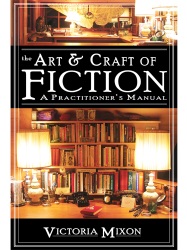Victoria, You have changed my whole outlook on what good writing is and is not. Thanks.
I am from the South. Texas to be exact. I am writing a story about the South. The hill country of Tennessee to be exact. I am confused about whether to use or not use contractions, local idioms, expressions, and other regional influences in my writing. I have read conflicting opinions about these matters. We in the South use very colorful and often specific expressions, many of which are cliches. I understand cliches being a problem and that fresh expressions make for fresh writing. So, how should I handle this problem? Thanks and keep it out of the ditch!—Jocko
Ah, you’re talking about the difference between narrative voice and dialog. One is the author speaking, and the other is the characters speaking.
The trick to showcasing dialect is to make it the smallest percentage of your writing possible, casting the rest of your writing in standard English. Because dialect requires effort on the part of the reader, it is most attractive to the reader for whom that effort is the least, i.e. readers from the writer’s native area. However, this eliminates a huge percentage of your potential readership. So you appeal to that huge percentage by casting the majority of your work in English we have all agreed to understand the same way, by virtue of dictionaries and school. Keep alternate pronunciation of words to a minimum to give them the greatest impact.
On the other side of the coin, because regional influences are surprising and unique and often intensely vivid, they create a wonderful opportunity for the writer to flesh out their story in a three-dimensional world. So they’re a goldmine—particularly if this is regional influence bred into your bones, so just the right snappy turn of phrase tends to surface at just the right moment from your decades-old subconscious. Put that in your characters’ voices. Showcase it with Standard English in your narrative.
I have a whole chapter on this in The Art & Craft of Fiction. The short version is: lean on your idiomatic language and expressions, your regional cliches that are not cliche elsewhere, and try not to draw attention to yourself with fancy dialectic punctuation and spelling.
In particular, if you’re a Southerner, read Flannery O’Connor and Eudora Welty to learn how to do it right. Those two were masters.
(My Gampie was from Fort Davis in the Fort Davis Mountains. Although he moved to Southern California as a young man, he never lost his twang.)
“The freshest and
most relevant advice
you’ll find.”
—Helen Gallagher,
Seattle P-I
The Art & Craft of Story


